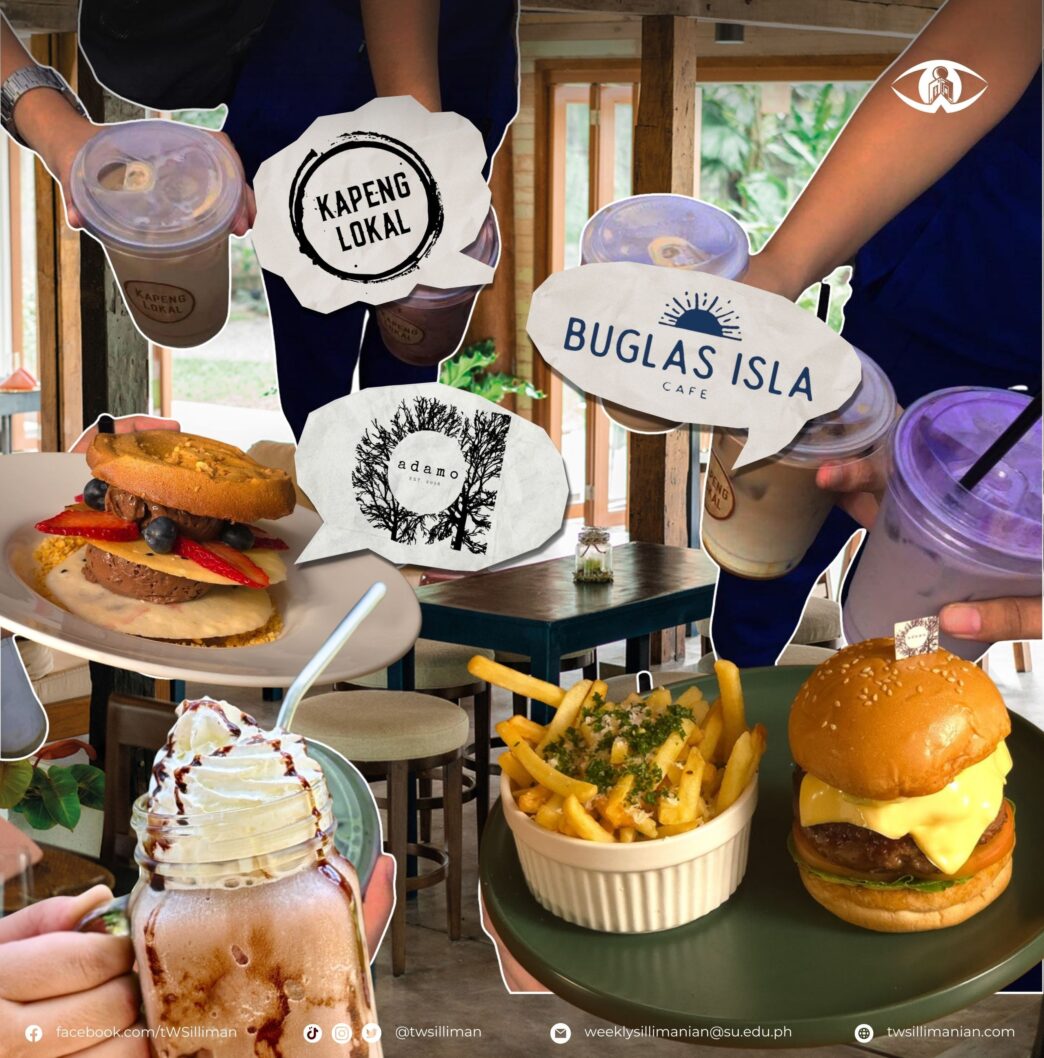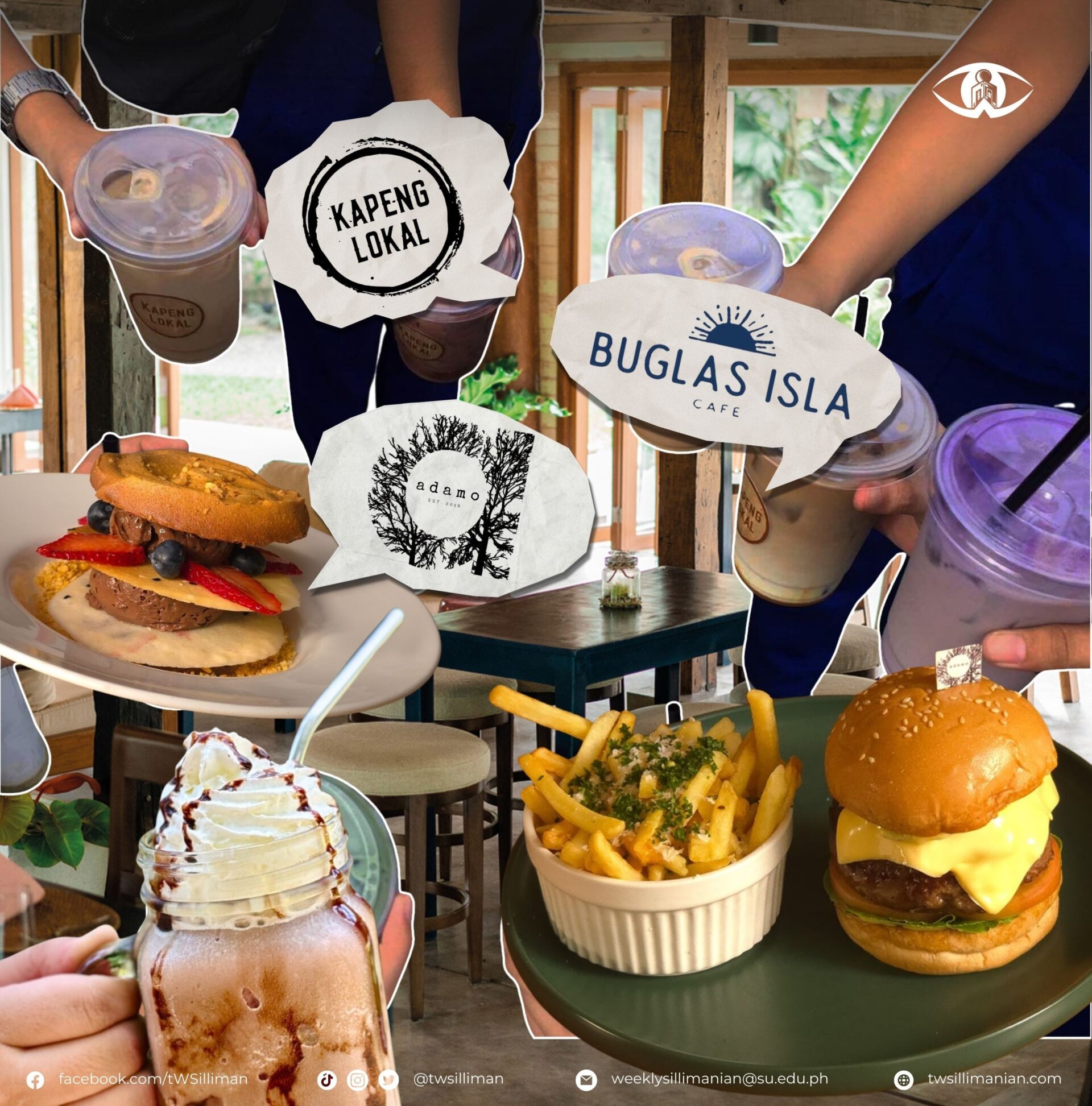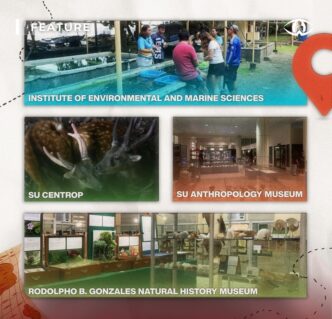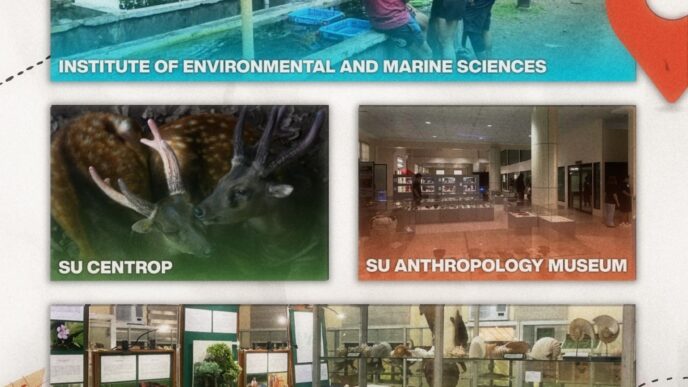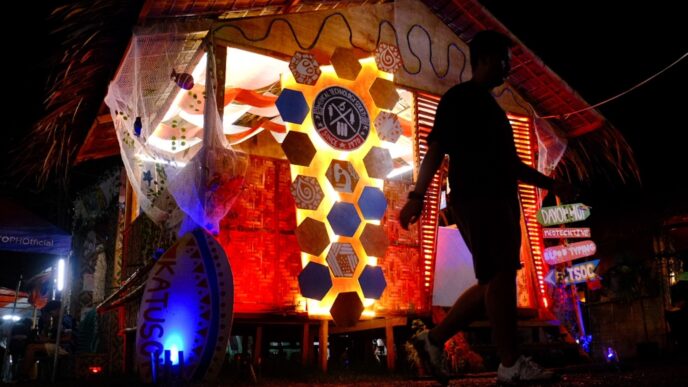By Cynthia Shank and Ryanne Czarina Villegas
In a world where fast food chains and imported brands dominate street corners, some Dumaguete businesses are quietly, yet powerfully, making a case for empowering locality. They are not just selling products, they are telling the stories of farmers, fisherfolk, and homegrown makers with every cup, plate, and purchase.
One such place is “Kapeng Lokal” or “Kaplok,” as students affectionately call it, tucked inside Silliman University with other branches along various parts of Dumaguete City. On most days, you would find students hunched over laptops, an iced beverage in hand, fueling both deadlines and dreams. But behind every cup is a commitment to sourcing close to home.
“Our beans are robusta, and our fresh milk comes from Valencia,” shares Igie Bandiling, one of the baristas. “We also get our beans from Dauis, Bacong. Even our syrups are homemade.” The process is as intentional as it is simple—first in, first out—ensuring freshness and minimizing waste.
What sets their coffee apart, Bandiling smiles, is if the beans and syrups are good, the coffee is good. “And ours? Yum.”
It’s an unpretentious statement, but it’s a reminder that quality often comes from care. Care for ingredients, care for local suppliers, and care for the people who drink it.
A short walk from the university, located in Daro, “Adamo Dumaguete” is serving a different kind of local story. Known for its sleek interiors and ever-changing menu, Adamo is a chef-driven restaurant sourcing seafood from Negros Oriental fisherfolk and vegetables from nearby farmers. Their dishes, plated like works of art, are proof that supporting locally can be the very definition of sophistication.
Here, the catch of the day had been pulled from the waters of Bais and served on your table. The greens on your plate? Harvested just hours before from farms in Valencia or Pamplona. In Adamo, each dish is a collaboration between chef and community.
And then there’s “Buglas Isla Café” in Piapi. A space where food and sustainability intertwine. Their menu reads like a love letter to the island’s biodiversity: locally grown herbs, plants, and natural products take center stage. From refreshing herbal teas to aromatic rice meals, every order supports a network of small growers and producers.
Buglas Isla’s philosophy is simple: what’s good for the land is good for the people. By choosing suppliers who practice sustainable farming, they ensure their dishes nourish more than just the person eating them—they nourish the community’s future.
In each of these places—whether it’s a ₱40 cup of coffee between classes, a five-course dinner date, or a slow afternoon tea—there is a choice being made. A choice to put money back into local hands, to reduce the distance between farm and table, and to keep Negros Oriental’s food culture alive.
Because in Dumaguete, going local isn’t just a trend. It’s a movement—one that’s brewing, cooking, and growing right in our backyard.

